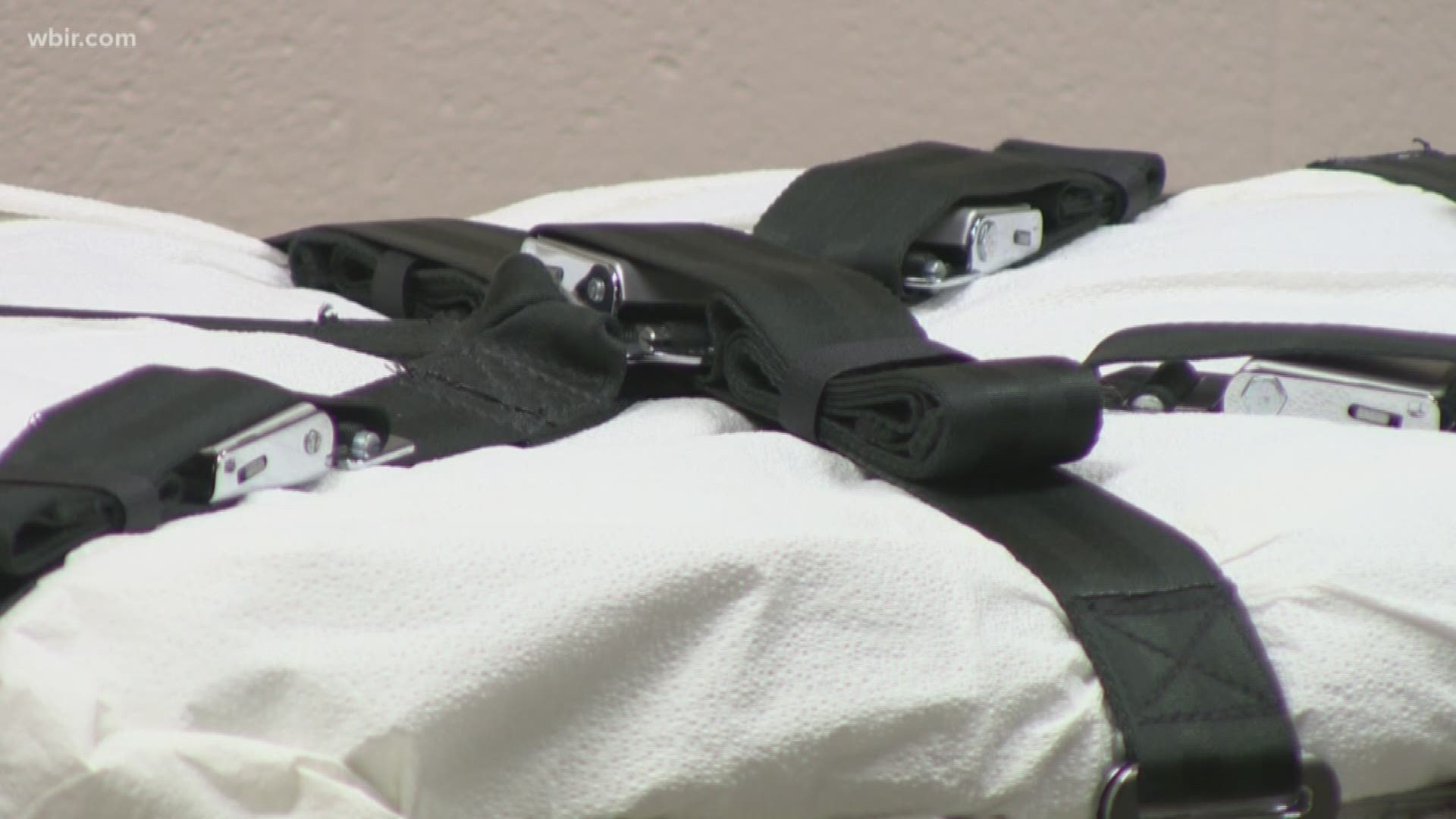Update:
Tennessee Gov. Bill Haslam has delayed the execution for death row inmate Edmund Zagorski by 10 days.
“I am granting to Edmund Zagorski a reprieve of 10 days from execution of the sentence of death imposed upon by him by a jury in 1984 which was scheduled to be carried out later today. I take seriously the responsibility imposed upon the Tennessee Department of Correction and me by law, and given the federal court’s decision to honor Zagorski’s last-minute decision to choose electrocution as the method of execution, this brief reprieve will give all involved the time necessary to carry out the sentence in an orderly and careful manner," Haslam said in a statement Thursday.
Previous:
Hours before Edmund Zagorski was scheduled to die, a federal district judge issued a temporary restraining order and preliminary injunction barring the state from executing him by lethal injection.
The order means that if the execution goes as scheduled, it would be by electric chair.
Zagorski had asked the federal court to to force the state to use the electric chair for his execution — the state initially refused and planned to move forward with lethal injection.
But District Judge Aleta Trauger at noon Thursday said the state could not use lethal injection until Zagorski's claim had been heard.
It is unclear whether the state can move forward with an execution by electric chair Thursday.
Neysa Taylor, a spokeswoman for the Tennessee Department of Correction, would not directly respond to a question of whether the state was prepared for an electric chair execution, saying only “We’re prepared to carry out the will of the court.”
“We’re still standing by,” she said. “Obviously this is a very fluid situation.”
Federal public defender Kelley Henry, who represents Zagorski, said the state had to honor his request for the electric chair. State law allows death row inmates to choose the chair if they were convicted for a crime that occurred before 1999, but prison officials said Zagorski made his choice too late.
“While being burned alive and mutilated via electricity is not a good death, Mr. Zagorski knows that death by electric chair will be much quicker than lethal injection using midazolam, a paralytic, and potassium chloride," Henry said.
Trauger's order was the latest in a flurry of last-minute legal wrangling that continued to play out as his scheduled 7 p.m. execution loomed.
Zagorski, 63, faces death for the April 1983 murders of John Dale Dotson and Jimmy Porter.
Three separate challenges continue ahead of the planned 7 p.m. execution.
Trauger's order was part of an emergency challenge in the U.S. District Court in Middle Tennessee filed Wednesday which argued the state must honor Zagorski’s request to be executed by electric chair, instead of a controversial lethal injection protocol used to execute Billy Ray Irick on August 9.
The 6th Circuit Court of Appeals on Wednesday issued a stay to weigh whether Zagorski may pursue claims his trial attorneys made errors in representing him. On Thursday, the state asked the U.S. Supreme Court to deny a stay and allow the execution to move forward.
On Tuesday, Zagorski’s attorneys also petitioned the U.S. Supreme Court seeking a stay of the execution based on a challenge to the constitutionality of Tennessee’s lethal injection protocol. The state responded Thursday by asking the court to vacate the stay.
Zagorski, who has been on death row for 34 years, was convicted of first-degree murder in Dotson and Porter's gruesome deaths.
He shot them, slit their throats and stole their money and a truck, prosecutors say. The two men had expected to buy 100 pounds of marijuana from Zagorski.
Verna Wyatt, an advocate with Tennessee Voices for Victims, has been in contact with victim Dotson’s family as the challenges piled up.
“What this process does to the victims’ families is barbaric,” Wyatt said. “Thirty-four years, they don’t get justice and it’s an ongoing reliving of their grief and what happened to their loved one.
“If they won’t fix this system, it should be abolished. This is not justice on any level. It’s outrageous.”
More: Edmund Zagorski spent 34 years behind bars with no visitors. He's scheduled to be executed Thursday.
Reach Natalie Neysa Alund at nalund@tennessean.com and follow her on Twitter @nataliealund. Reach Anita Wadhwani at awadhwani@tennessean.com and follow her on Twitter @anitawadhwani.

